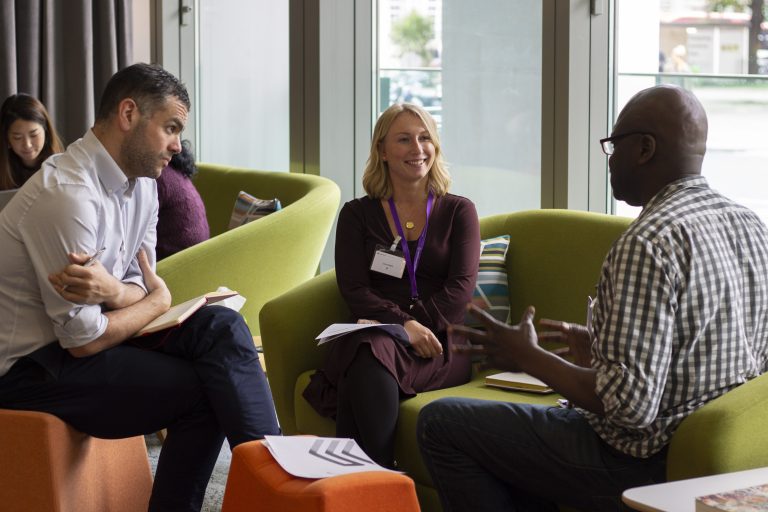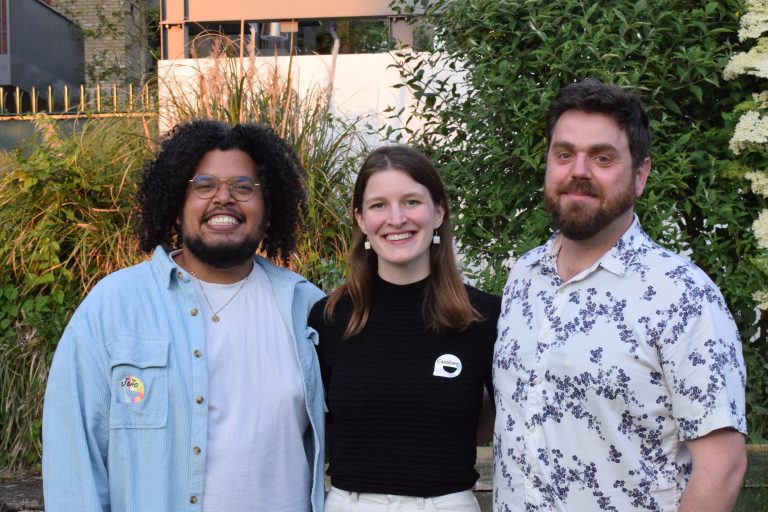
Refugee Friendly Workplaces: Addressing the hidden impacts of global conflicts
When atrocities happen across the world, the toll for refugees can be enormous. Yet their struggles often remain invisible in the workplace.
When we see atrocities happening across the world – genocide, conflict, famine, humanitarian crises – the focus is often on those directly affected. Rarely do we see mention of how these events impact the daily lives of people not immediately involved.
For people of a refugee background, the toll can be enormous, yet their struggles often remain invisible in the workplace.
This blog highlights the challenges refugees face in the workplace and offers steps for creating inclusive, supportive environments.
The impact of bias and discrimination
The following are all real scenarios that our team and our clients have faced.
Imagine worrying about whether racism and prejudice against your home country mean that you will face discrimination at work. To the point that you choose to pretend you are a different nationality after being told ‘so you’re a terrorist then,’ by a group of people you’d never met before. Simply because you are Syrian, Palestinian, Iranian, or any other nationality that comes with racialised stereotypes.
In today’s world, we know that some employers check candidate’s social media accounts before offering them a role. And we know that some companies may reject a candidate who has spoken out about war, discrimination, human rights violations, or anything else deemed too political.
Imagine being someone whose family, friends and community are in danger, but feeling like you can’t say anything publicly in case you lose an opportunity to gain vital employment or put your career on the line by doing so.
Imagine worrying that your visa might be revoked if you attend a protest?
If this were happening to you while you were applying for jobs, starting a new role, or even years into your career, what impact would it have? The feeling of being unsafe, unheard and having to self-censor, to hide parts of yourself from colleagues for fear of repercussions.
The perceived risk of speaking out can have a huge impact on wellbeing. As can the feeling of having to hide your identity or opinions. If no one in your leadership or management teams has experience of this, it can be difficult to feel safe enough to express your views. That’s why it’s vital to create spaces where people can come together to share their experiences, and spaces where allies can also join to show their support.
Training senior leadership, managers and teams around bias, prejudice, anti-racism and how to have meaningful 121s where there is space for people to raise these issues is also a step in the right direction.
The wider emotional and psychological impact
Whether the conflict, disaster, or violation of rights is headline news or not, it is highly likely to have an ongoing impact on anyone with a connection to the event.
It can be exhausting to juggle the constant worry that you might hold for people that you love, the fears raised by a story in the press or social media posts, or the distress triggered by similarities between what is happening now and what has happened to you in the past.
There are many other emotions that may be experienced too. Guilt that you are safe while others aren’t, anger that other people seem able to continue with normal life, helplessness, grief and many more.
And this can impact on your work, career and livelihood. Brain fog, exhaustion, struggling to focus, finding office spaces overwhelming – the list is long. But having the right support in place can make a huge difference.
Does your workplace have policies to support people who need to take some time off or flex their working so that they can protect their mental health? Do employees have access to Employment Assistance Programmes? How much autonomy do line managers have to be able to quickly support their teams when needed?
Steps you can take within the workplace
There are things we can all do to help people who are facing these events. To make sure they know they aren’t alone.
Many of our team and refugee clients have had their wellbeing and resilience severely tested over the years. Ukraine, Afghanistan, Syria, Palestine, the long uncertainty and fear around the Rwanda bill, and conflicts and humanitarian crises that receive less media attention but are just as real – Ethiopia, Eritrea, South Sudan, Myanmar, Yemen to pick just a few. This is layered on top of the challenges they’ve already faced as a person of refugee background.
We haven’t always got it right at Breaking Barriers. But we are continually learning so that we can be the best that we can be for our team. Here are some questions we asked ourselves, and that we would encourage every employer who wants to create inclusive and refugee friendly workplaces to consider:
- Are there ways for employees are impacted by global events to come together safely to talk about how they are affected?
- Are there ways for allies to show their support, such as facilitating safe spaces or acting as liaisons between groups who are affected and senior leaders?
- Do your hiring policies ensure people won’t face discrimination due to their background or their peaceful engagement with global events?
- Are you supporting your managers and teams with training on:
- Bias, prejudice and anti-racism?
- How to have difficult and emotional conversations?
- How to run effective 121s with their team and to ensure there is a space to talk about wellbeing, and not just tasks?
- Do you have policies in place to support people who need to take some time off or flex their working so that they can protect their mental health? And are managers able to respond quickly when needed?
- Do you have an Employment Assistance Programme in place?
- Do you have frameworks in place to decide when you will, or will not, respond to global events internally and externally to avoid bias?
- Are your internal and external responses joined up?
For people of refugee background, the impact of world events can be huge. It is also deeply individual. No one person’s experience is exactly the same as another’s. But safe and inclusive workplaces can make a big difference. Ensuring there is space to be heard, access to support, and the flexibility to meet urgent needs can have a long-lasting, positive impact on people’s lives.




